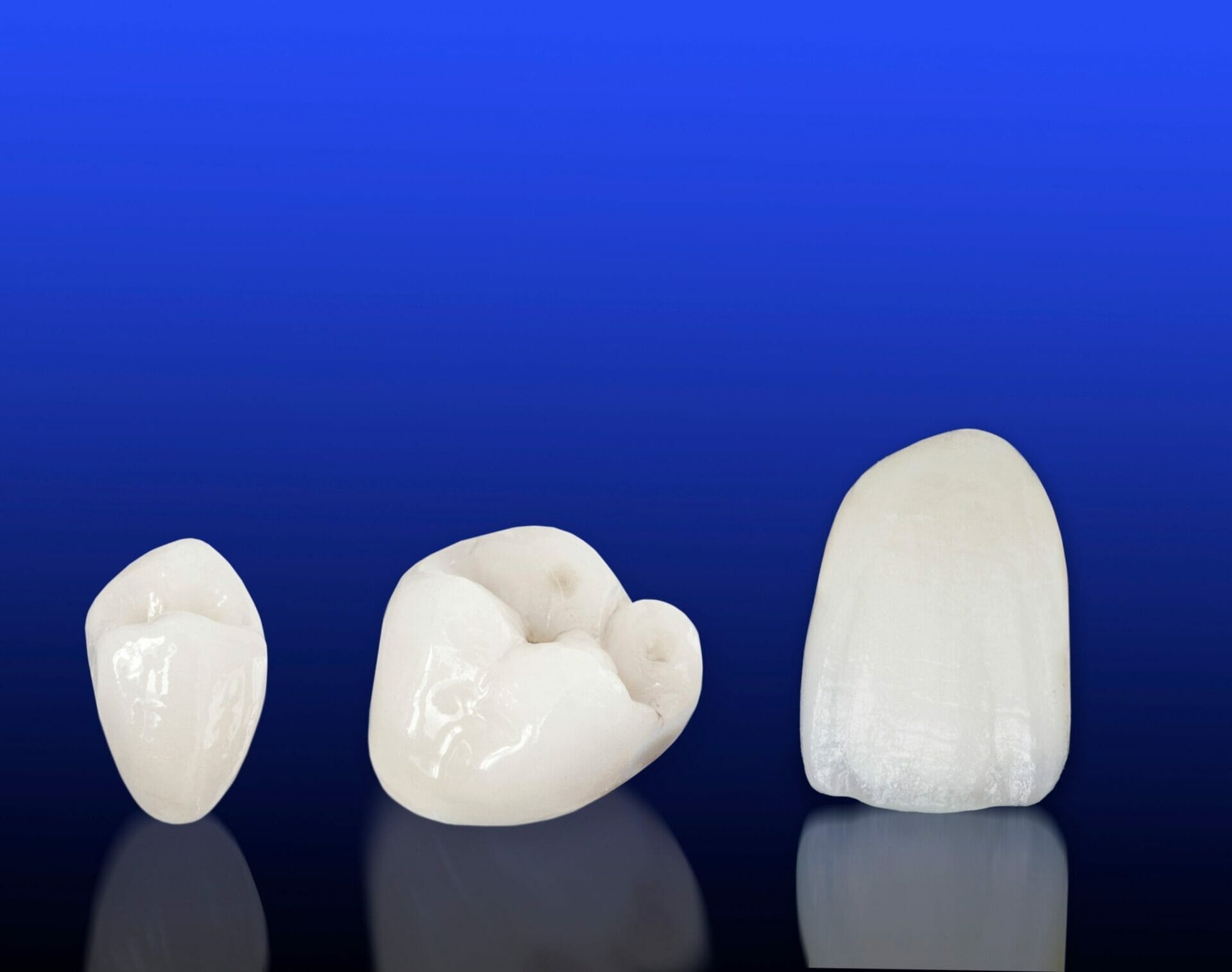
With this brief article, I wanted to explore if and why dental crowns actually necessary for restoring certain teeth. Patients often respond to crown recommendations by asking if the treatment is really necessary. Crowns cost about $1,000 per tooth and dental insurance plans rarely subsidize more than 50% of the total cost. When we talk about treatments that are going to result in large out-of-pocket expenditures, reluctance goes way up and more questions arise. And that is a good thing. Patients should understand the value of proposed treatments before committing to them. Below, I will provide little known information about dental crowns, when they are necessary, and why patients tend to avoid pursuing this treatment.

Great question. Most people know dental crowns as "caps". Think of a dental crown as a protective helmet for a weakened tooth. If you look at the picture on the left you will see how the crown fits over the tooth. The crown covers the entire tooth on top and sides, all the way down to the gumline. It reinforces the tooth to drastically reduce chance of fracture. The crown at left is made of tooth-coloured porcelain. This is the most common type of dental crown.
Dental crowns strengthen and reinforce weakened teeth. Here is a brief list of conditions where a tooth is compromised and, therefore, where the tooth would benefit from a crown:
If you tell a patient that they have a cavity and require a filling, in most cases they will accept treatment. When you can identify an active problem, patients are likely to agree with treatment proposed by their family dentist. Crowns, however, are different. Often times patients will ask: "so what exactly is wrong with my tooth?". Crowns are often not proposed as a fix for an active problem. They are prophylactic or they prevent something bad from happening in future. A dental crown is a risk management solution. It reinforces a tooth that is at an increased risk of fracturing though it might never fracture. This is a major reason patients will often not fully appreciate the value of a dental crown.
The second major barrier to treatment acceptance with dental crowns is cost and dental insurance coverage. Crowns cost about $1,000. I can certainly appreciate that $1,000 is a lot of money. What makes things more challenging is the fact that many dental insurance plans do not cover dental crowns. Those plans that do cover dental crowns typically do so at only a 50% reimbursement rate. So, the average patient with crown coverage will be paying approximately $500 out of their own pocket for a dental crown.
This is a really interesting question mostly because, if a patient knows a prosthesis is non-removable they assume it is permanent. And this is totally reasonable. One thing that we can probably raise the bar on in Dentistry is to be more open about the possibility of treatment failure. So, let's discuss dental crown longevity.
Dental crowns typically last 15-20 years. Importantly, this is an average range. Some fail before 15 years and others can exceed 40 years of service in the mouth. The main reason for failure is recurrent decay (or a new "cavity") at the crown margin. The margin is the interface between the crown and the underlying tooth. It is a line around the tooth near the gum line. In some cases, the Dentist can access the decay site freely to repair it. When the decay site is between the crowned tooth and a neighbouring tooth, it cannot be repaired and a new crown is required.
Generally, gold or cast metal crown longevity far exceeds that of porcelain crowns. The reason is that metals can provide the best marginal seal. A dental lab technician can heat and adapt the metal to the margin on a stone model of the tooth. Porcelain, in contrast, has to be cut and shaved progressively to achieve an inferior marginal seal.
To re-summarize, dental crowns are recommended for weakened and compromised teeth. These teeth are statistically far more likely to break or fracture requiring extraction. Reinforcing these teeth with a dental crown drastically reduces the risk of future fracture.

So, this is all based on probability not certainty. I have had patients decline to reinforce weakened teeth with crowns and 5 years later, their teeth are in great shape. They beat the odds. And, guess what? I'm happy for them. I never like to see something go wrong for my patients. In other cases, a compromised tooth breaks or fractures in an unrestorable way and we end up having to extract the tooth. So, it is very important to keep in mind that a dental crown is a risk management solution. There are no crystal balls in Dentistry and we can only make recommendations based on statistical chance or probability.
If you would like to discuss dental crowns with Dr. Kyle Hornby, give us a call at (519) 576-8160 or request a consult here.
This article is intended to promote understanding of and knowledge about general oral health topics. It is not intended to be a substitute for professional advice, diagnosis or treatment. Always seek the advice of your Kitchener Dental Health Team or other qualified healthcare provider with any questions you may have regarding a dental condition or treatment.
